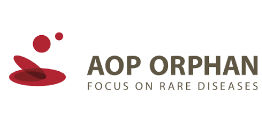预约演示
更新于:2025-05-07
Elsilimomab(AOP Orphan Pharmaceuticals AG)
艾西莫单抗
更新于:2025-05-07
概要
基本信息
在研机构- |
权益机构- |
最高研发阶段终止临床2期 |
首次获批日期- |
最高研发阶段(中国)- |
特殊审评- |
登录后查看时间轴
结构/序列
Sequence Code 1116885908L

Sequence Code 1116885907H

关联
100 项与 艾西莫单抗 相关的临床结果
登录后查看更多信息
100 项与 艾西莫单抗 相关的转化医学
登录后查看更多信息
100 项与 艾西莫单抗 相关的专利(医药)
登录后查看更多信息
16
项与 艾西莫单抗 相关的文献(医药)2017-02-01·Haematologica1区 · 医学
Due to interleukin-6 type cytokine redundancy only glycoprotein 130 receptor blockade efficiently inhibits myeloma growth
1区 · 医学
Article
作者: Klausz, Katja ; Günther, Andreas ; Burger, Renate ; Penas, Eva Maria Murga ; Wijdenes, John ; Rose-John, Stefan ; Peipp, Matthias ; Staudinger, Matthias ; Gramatzki, Martin
2016-04-02·Expert Opinion on Emerging Drugs2区 · 医学
Emerging antibodies for the treatment of multiple myeloma
2区 · 医学
Review
作者: Zagouri, Flora ; Terpos, Evangelos ; Dimopoulos, Meletios A ; Kastritis, Efstathios
2015-07-01·Applied Microbiology and Biotechnology3区 · 工程技术
Identification of two novel rabbit hemorrhagic disease virus (RHDV) B cell epitopes and evaluation of its immunoprotection against RHDV
3区 · 工程技术
Article
作者: Huang QianQian ; Jiang Qian ; Hu XiaoLiang ; Qu LianDong ; Liu HuaiRan ; Kong DeSheng ; Yu Zuo ; Liu JiaSen ; Wang FengJie ; Guo DongChun
1
项与 艾西莫单抗 相关的新闻(医药)2022-12-05
2022年10月1日起,行政相对人可登录网上办事大厅的法定代表人空间查看电子证照,按照法人空间内相关提示自行打印。序号受理编号产品名称注册人注册证号批准日期备注1GHZTZ2104168悦诗风吟丝柔修颜隔离乳01柔情紫爱茉莉化妆品(上海)有限公司国妆特字202237232022-11-29/2GHZTZ2104169悦诗风吟丝柔修颜隔离乳02奶昔绿爱茉莉化妆品(上海)有限公司国妆特字202237202022-11-29/3GHZTZ2104400道欣染发膏(深闷青亚麻色)广州道欣化妆品科技有限公司国妆特字202237192022-11-29/4GHZTZ2200231chuzhuangliren楚庄丽人美白修护精华液广州市白云莱茵化妆品厂国妆特字202237292022-11-29/5GHZTZ2200232chuzhuangliren楚庄丽人美白淡斑乳液广州市白云莱茵化妆品厂国妆特字202237342022-11-29/6GHZTZ2200237Galancur美白防晒乳 SPF50+广州市白云莱茵化妆品厂国妆特字202237182022-11-29/7GHZTZ2200239乐尚妆美白祛痘精华液广州市白云莱茵化妆品厂国妆特字202237212022-11-29/8GHZTZ2200242郝爱妮美白祛痘精华液广州市白云莱茵化妆品厂国妆特字202237222022-11-29/9GHZTZ2200244美攻芙美白祛印修护乳液广州市白云莱茵化妆品厂国妆特字202237142022-11-29/10GHZTZ2200296乐尚妆美白防晒修护乳 SPF50+ PA+++广州市白云莱茵化妆品厂国妆特字202237122022-11-29/11GHZTZ2200356雅美娜黑亮芳香润黑露广州瀚俪生物科技有限公司国妆特字202237112022-11-29/12GHZTZ2200402私信水感清透隔离防晒乳广东雅丽洁精细化工有限公司国妆特字202237382022-11-29/13GHZTZ2200461汉淇HANQI染发膏(橙金色)广州市邦妮精细化工有限公司国妆特字202237362022-11-29/14GHZTZ2200465纽莱伊美光甘草定美白淡斑双萃精华液深圳市一木国际生物科技有限公司国妆特字202237392022-11-29/15GHZTZ2200475舒蒂雅染发膏(红棕色)广州市采洁化妆品有限公司国妆特字202237262022-11-29/16GHZTZ2200476舒蒂雅染发膏(橙红色)广州市采洁化妆品有限公司国妆特字202237302022-11-29/17GHZTZ2200477舒蒂雅染发膏(青灰色)广州市采洁化妆品有限公司国妆特字202237282022-11-29/18GHZTZ2200478舒蒂雅染发膏(浅灰色)广州市采洁化妆品有限公司国妆特字202237272022-11-29/19GHZTZ2200479舒蒂雅染发膏(紫红色)广州市采洁化妆品有限公司国妆特字202237252022-11-29/20GHZTZ2200480舒蒂雅染发膏(摩卡色)广州市采洁化妆品有限公司国妆特字202237352022-11-29/21GHZTZ2200481舒蒂雅染发膏(金黄色)广州市采洁化妆品有限公司国妆特字202237242022-11-29/22GHZTZ2200482舒蒂雅染发膏(栗子色)广州市采洁化妆品有限公司国妆特字202237332022-11-29/23GHZTZ2200530Dlro染发膏(自然黑)广州市金栢丽保健品有限公司国妆特字202237322022-11-29/24GHZTZ2200603惠彩炫色黑发霜(自然黑)广东惠彩化妆品有限公司国妆特字202237132022-11-29/25GHZTZ2200620米诺克斯动感烫发剂广州千羽化妆品有限公司国妆特字202237172022-11-29/26GHZTZ2200667米诺克斯活力烫发剂广州千羽化妆品有限公司国妆特字202237162022-11-29/27GHZTZ2200714惠彩染发焗油膏(02)广东惠彩化妆品有限公司国妆特字202237152022-11-29/28GHZTZ2200791绿宸染发膏(蓝黑色)广州市白云区美倩日用化妆品厂国妆特字202237312022-11-29/29GHZTZ2200855递欧美白祛斑乳广东美宝化妆品有限公司国妆特字202237372022-11-29/30JHZTZ2101121艾诺碧焕活盈亮乳液株式会社爱茉莉太平洋国妆特进字202206572022-11-29/31JHZTZ2101122艾诺碧焕活盈亮柔肤水株式会社爱茉莉太平洋国妆特进字202206512022-11-29/32JHZTZ2101126兰芝新颜柔雾粉底液 #21N1株式会社爱茉莉太平洋国妆特进字202206592022-11-29/33JHZTZ2101209莱珀妮瑞士轻盈防晒乳液 SPF50瑞士蓓丽护肤系列研究所国妆特进字202206472022-11-29/34JHZTZ2101264薇蒂艾儿 玫瑰精萃养肤 妆前乳LG生活健康股份有限公司国妆特进字202206502022-11-29/35JHZTZ2101337魅可丝柔持久遮瑕膏19化妆艺术有限公司国妆特进字202206482022-11-29/36JHZTZ2101338魅可丝柔持久遮瑕膏26化妆艺术有限公司国妆特进字202206562022-11-29/37JHZTZ2101339魅可丝柔持久遮瑕膏14化妆艺术有限公司国妆特进字202206532022-11-29/38JHZTZ2101373普柔玛丝特染发膏(一) E SG-6(配合普柔双氧乳 2%)朋友株式会社国妆特进字202206442022-11-29/39JHZTZ2101374普柔玛丝特染发膏(一) E BE-8(配合普柔双氧乳 2%)朋友株式会社国妆特进字202206342022-11-29/40JHZTZ2101375普柔玛丝特染发膏(一) MT-7/6(配合普柔双氧乳 6%)朋友株式会社国妆特进字202206392022-11-29/41JHZTZ2101376普柔玛丝特染发膏(一) SV-6(配合普柔双氧乳 2%)朋友株式会社国妆特进字202206462022-11-29/42JHZTZ2101377普柔玛丝特染发膏(一) E NA-3(配合普柔双氧乳 2%)朋友株式会社国妆特进字202206432022-11-29/43JHZTZ2101378普柔玛丝特染发膏(一) E BR-6(配合普柔双氧乳 2%)朋友株式会社国妆特进字202206422022-11-29/44JHZTZ2101379普柔玛丝特染发膏(一) EG-6(配合普柔双氧乳 2%)朋友株式会社国妆特进字202206382022-11-29/45JHZTZ2101380普柔玛丝特染发膏(一) A-7/6(配合普柔双氧乳 6%)朋友株式会社国妆特进字202206402022-11-29/46JHZTZ2101381普柔玛丝特染发膏(一) CB-5(配合普柔双氧乳 2%)朋友株式会社国妆特进字202206352022-11-29/47JHZTZ2101382普柔玛丝特染发膏(一) BB-1(配合普柔双氧乳 2%)朋友株式会社国妆特进字202206452022-11-29/48JHZTZ2101383普柔玛丝特染发膏(一) MT-6/5(配合普柔双氧乳 6%)朋友株式会社国妆特进字202206372022-11-29/49JHZTZ2101385普柔玛丝特染发膏(一) M-10/10(配合普柔双氧乳 6%)朋友株式会社国妆特进字202206362022-11-29/50JHZTZ2101386普柔玛丝特染发膏(一) M-9/9(配合普柔双氧乳 6%)朋友株式会社国妆特进字202206412022-11-29/51JHZTZ2200117FAIRLUCENT 焕白隔离霜 SPF30 PA+++日本美伊娜多化妆品株式会社国妆特进字202206582022-11-29/52JHZTZ2200135花王莉婕泡沫染发剂 LAW26花王株式会社国妆特进字202206552022-11-29/53JHZTZ2200136花王莉婕泡沫染发剂 LAW27花王株式会社国妆特进字202206522022-11-29/54JHZTZ2200138歌薇依芙中性烫发剂 2号德国花王有限公司国妆特进字202206542022-11-29/55JHZTZ2200139歌薇依芙中性烫发剂 1号德国花王有限公司国妆特进字202206602022-11-29/56JHZTZ2200144肌司研德玛修护倍护防晒气垫吉珀可莱集团国妆特进字202206492022-11-29/
申请上市上市批准临床1期
100 项与 艾西莫单抗 相关的药物交易
登录后查看更多信息
外链
| KEGG | Wiki | ATC | Drug Bank |
|---|---|---|---|
| - | 艾西莫单抗 | - | - |
研发状态
10 条进展最快的记录, 后查看更多信息
登录
| 适应症 | 最高研发状态 | 国家/地区 | 公司 | 日期 |
|---|---|---|---|---|
| 多发性骨髓瘤 | 临床2期 | 法国 | - | |
| 多发性骨髓瘤 | 临床2期 | - | - | |
| 多发性骨髓瘤 | 临床2期 | 法国 | - | |
| 多发性骨髓瘤 | 临床2期 | - | - | |
| 多发性骨髓瘤 | 临床2期 | - | - | |
| 多发性骨髓瘤 | 临床2期 | - | - | |
| 移植后淋巴增生性疾病 | 临床2期 | 法国 | - |
登录后查看更多信息
临床结果
临床结果
适应症
分期
评价
查看全部结果
| 研究 | 分期 | 人群特征 | 评价人数 | 分组 | 结果 | 评价 | 发布日期 |
|---|
No Data | |||||||
登录后查看更多信息
转化医学
使用我们的转化医学数据加速您的研究。
登录
或

药物交易
使用我们的药物交易数据加速您的研究。
登录
或

核心专利
使用我们的核心专利数据促进您的研究。
登录
或

临床分析
紧跟全球注册中心的最新临床试验。
登录
或

批准
利用最新的监管批准信息加速您的研究。
登录
或

生物类似药
生物类似药在不同国家/地区的竞争态势。请注意临床1/2期并入临床2期,临床2/3期并入临床3期
登录
或

特殊审评
只需点击几下即可了解关键药物信息。
登录
或

生物医药百科问答
全新生物医药AI Agent 覆盖科研全链路,让突破性发现快人一步
立即开始免费试用!
智慧芽新药情报库是智慧芽专为生命科学人士构建的基于AI的创新药情报平台,助您全方位提升您的研发与决策效率。
立即开始数据试用!
智慧芽新药库数据也通过智慧芽数据服务平台,以API或者数据包形式对外开放,助您更加充分利用智慧芽新药情报信息。
生物序列数据库
生物药研发创新
免费使用
化学结构数据库
小分子化药研发创新
免费使用
